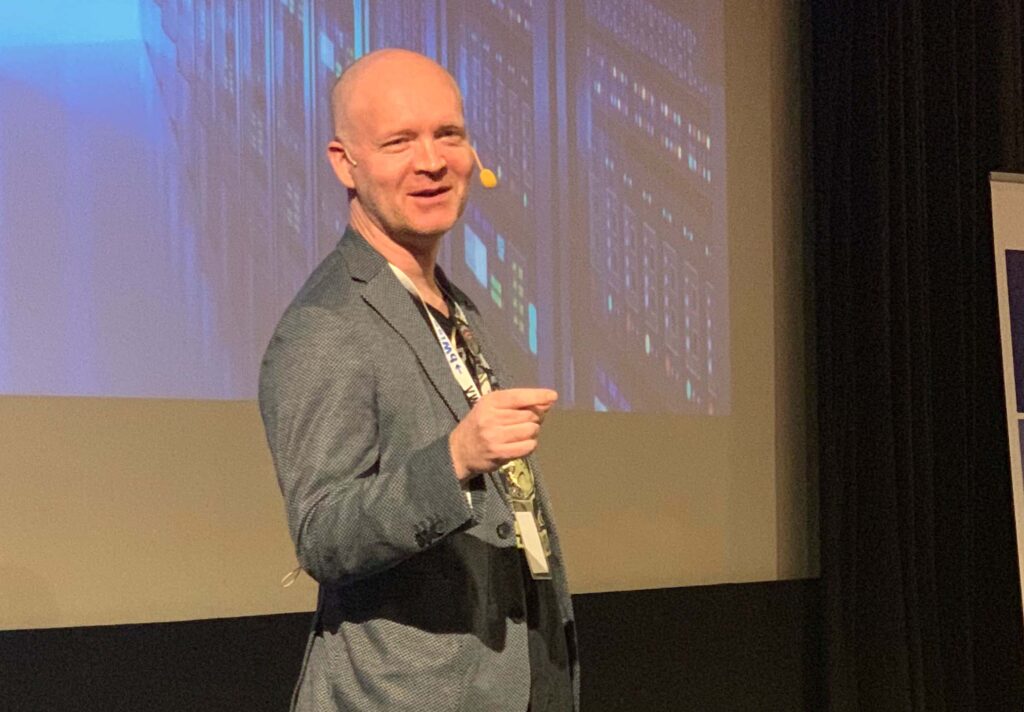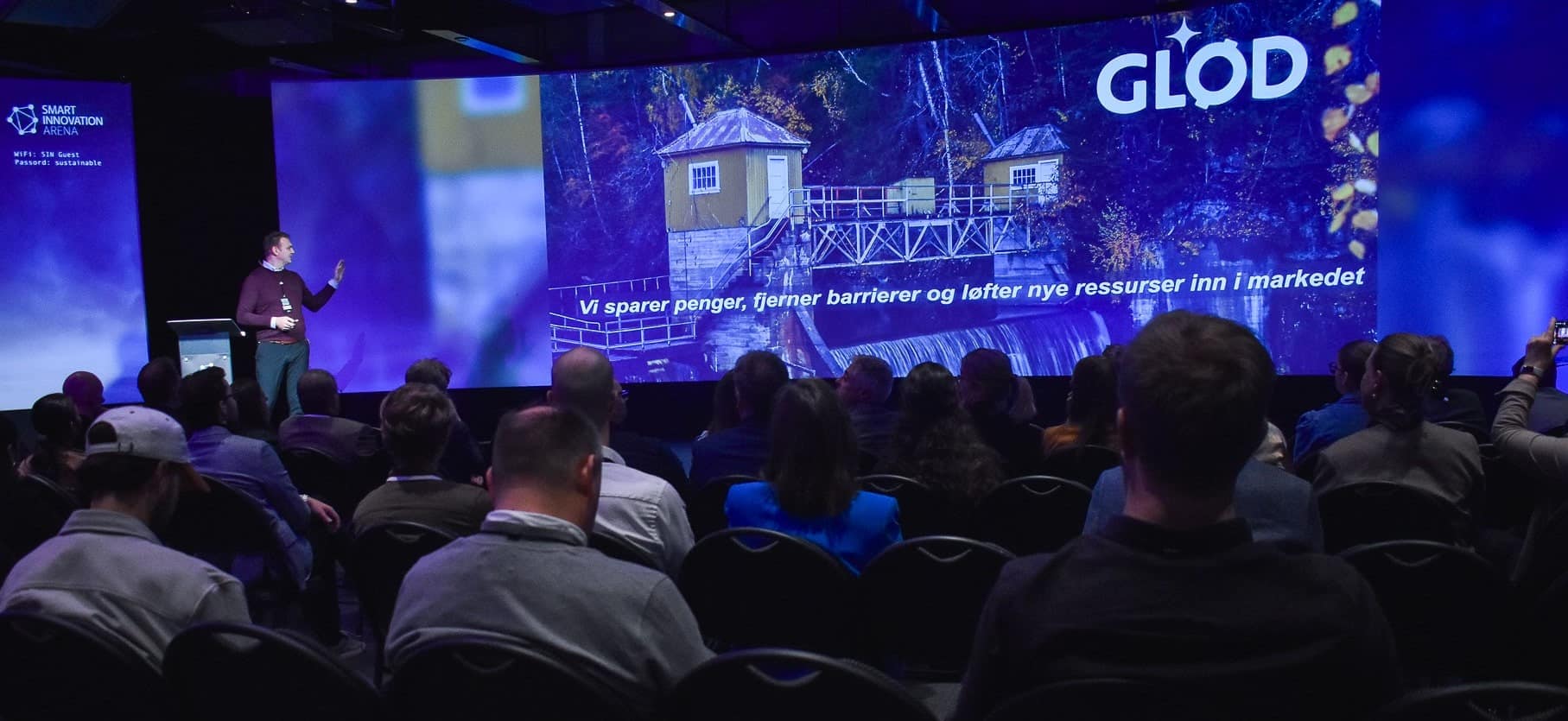One of today’s most long-term and desirable business resource is data. For decades, Norwegian companies have collected and stored data, and with AI as a constantly and rapidly growing technology, we finally have the tools to utilize much of the large amount of stored data.
By Anja Lillerud, May 2, 2022

Norway and Norwegian industry are in a unique position regarding the scale of data accessible. Only five years ago, the focus both politically and industrially was Norwegian investments in AI and AI research.
Already then Director Azure Cloud & AI Jon Jahren at Microsoft Norway questioned the direction of Norwegian AI development.
– Practically all the algorithms you will need are already open-sourced and the cloud vendors are making them increasingly easy to use, so that’s not where the real value lies, he explains.
Hence, Norwegian companies should concentrate on collecting data and utilize it in the best possible way instead of using resources on developing their own algorithms.
– The data is the gold of any company. Be sure to secure the business gold and let the major tech vendors handle and develop AI, says Jahren.
How to become data-driven
In recent years, more and more companies have been aware of the importance and value of their data, and they have tended to change the use of their data resources and their approach to AI.
At Microsoft’s AI business school, they sum up the journey to become a data-driven organization in three bullet points:
- Focus on being a data-driven company
- Implement it through an including and joint change of the business’ culture
- The use of AI must be responsible and ethical
– The first bullet point is about being aware of the data you collect and how it can be utilized. It’s also a matter of making the necessary tools needed to implement the change available in the organization, explains Jahren.

Adopting AI
Another challenge Microsoft faces, is the different industries’ and managers’ fear of the unknown. And even though AI increasingly has become a public domain the last years, it is still unfamiliar to numerous people.
The fear relates not only to one’s own competence, but also to the risk by using AI. Issues regarding ethics and privacy are highlighted, not because of the privacy itself, but because of the AI solution and whether it is secure enough.
One of Microsoft’s major tasks is the work they are doing on developing tools which are using explainable AI. Towards the customers, the algorithms in explainable AI can explain the choices that were made along the way and what is the reasoning behind the result.
Another important task to solve, is what is called differential privacy. In an ideal world, it is possible to build AI models from person sensitive data without the algorithm identifying the data. As an example, Norwegian health organizations have thousands of registers containing valuable data who when being ran through an algorithm can reveal patterns and correlations that humans are unable to see.
– We know there are information hidden in the data that can avert serious illness and improve patient predictions. But as of now, we don’t how to use the data and AI while at the same time ensuring privacy, says Jahren.
A third challenge to handle, is confidential computing. If you need to store or share personal information, you need a secure way to do so. When using a cloud, you must be sure that the cloud supplier under any circumstances doesn’t have an opportunity to access your information. Such solutions are becoming much cheaper and easier to use contributing to an increased adoption of AI into businesses.
– Solving issues like these mentioned, is probably one of the most important contributions from Microsoft, says Jahren.
– Responsible AI is important
Since both trust and reliability are important elements for succeeding a transformation and for adopting AI in an organization, Microsoft have created their own principles and adheres to them to ensure that their AI is responsible.
According to Microsoft, AI must be:
- Fair and unbiased
- Reliable and safe
- Inclusive
- Transparent
- Accountable
- Assuring privacy and security
Because of these principles, Microsoft decides to reject some projects. This is to preserve their integrity. In some cases, the large international company requires a declaration from their AI users to allow them to download the software.
– We cannot control everything and everyone, but by setting clear ethical considerations for usage, we express our opinion and make the user aware of the purpose of the algorithm, says Jahren.
– AI brings new opportunities to mankind
The last decade, AI has become more public, but we are still in the starting pit. The Director Azure Cloud & AI at Microsoft Norway is excited to be a part of the era.
– This new technology brings new opportunities to mankind. The algorithms have become so sophisticated and detailed that they solve issues just as good or even better than humans. Humanity is experiencing a boost by AI enabled applications that I find exciting, says Jon Jahren.
And because of AI being a commonplace, he knows Microsoft will face new and more challenging tasks.
AI is surrounding us and affecting our everyday life, hence there exists a wide range of expectations regarding AI and functionality in the society. The bank customers expect AI solutions to make their bank relation easier and more secure. At home you deal with AI software in your robotic vacuum cleaner and refrigerator.
– There is an anticipation regarding both the functionality of our products and that we offer products solving the tasks that the consumers or businesses need to be solved. This must be done without causing a major competence gap in the market, so it is accessible for a wide audience of developers and users. The days when AI was related only to PhDs in white overcoats are gone, says Jon Jahren.


